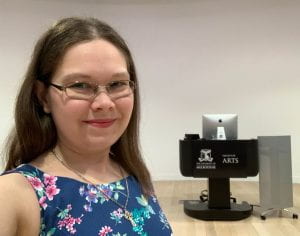
Celebrating Our Students’ Achievements
Each year we see our students achieve remarkable feats, and this year – despite being unusual due to a global pandemic that leaves us working and studying from home – is no different. Whether it is a highly successful grade in a particular subject or an excellent performance in thesis-work, students in the School of Historical and Philosophical Studies deserve to be very proud of their accomplishments. These awards would not be possible without the generous support of the many contributors and benefactors who have given to the School so that we can recognise our students’ work. The value of humanity and the humanities is loudly expressed by these gestures and these awards. Please reach out to the successful students and the donors of these awards to congratulate everyone involved!
Professor Margaret Cameron, Head of School
2019 Prizes & Scholarships
Callum Alpass
The Hastie Postgraduate Scholarship
“My research focuses on the political and ethical thought of Simone Weil, a French philosopher the majority of whose writings were published after her death in 1943 at the age of 34. I will be examining how Weil negotiates a relation to a transcendent Good, a relation which, for Weil, entails a patient ‘waiting’. According to Weil, the Good, or ‘God’, is ‘absent’ from this world, and we must await its arrival. I would like to explore the political consequences of such an ethical stance, a stance which may be characterised as largely passive. There seems to me to be a contradiction between an endorsement of passivity and the need to engage actively in order to bring about political justice. Though this contradiction is somewhat troubling, I believe it touches on – and Weil’s thinking responds to – questions about how power can interfere with our access to the Good. I would finally like to explore how Weil’s thinking may be brought to bear on philosophical debates which emerged, particularly in France, in the later half of the twentieth century.
The award of the Hastie Postgraduate Scholarship came to me as a big surprise, and has opened up opportunities which I had hardly thought possible. Particularly given my responsibilities as a father, I had thought the possibility of full-time further study quite unlikely. The generosity of the prize has meant that I can pursue my interest in philosophy full-time while also supporting my family. I have also found the prize to have given me the confidence to engage deeply with my philosophical interests. I am thus very grateful to the benefactors of the prize, and to my supervisor, Professor Chris Cordner, for all his help.’
Pelaya Arapakis
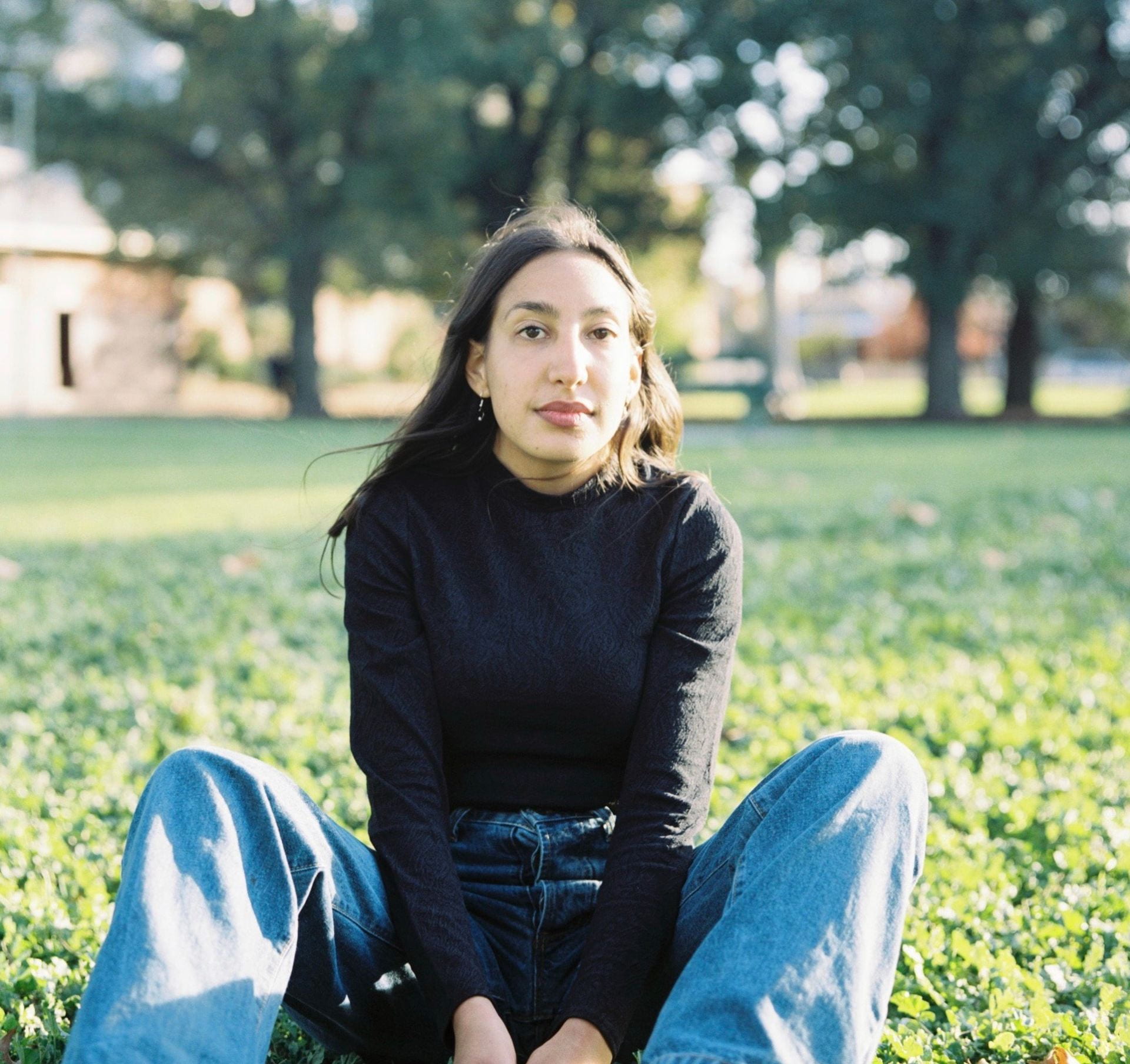 Awarded annually for an undergraduate essay in Australian history.
Awarded annually for an undergraduate essay in Australian history.
Pelaya’s essay detailed the ways in which settler colonial discourses in Australia have conceptualised Aboriginal women’s sexuality throughout the late nineteenth and early twentieth centuries.
Georgia Ardley
Awarded for the best piece of undergraduate work in the field of Irish Studies.
 Georgia’s prize-winning essay was titled ‘Feminism and Catholicism in Republican Ireland’. It focused on the proto-feminist group the Irish Women’s Liberation Movement in Dublin between 1970 and 1972 and examined how their campaigns for women’s rights were hindered by the influence of the Catholic Church in the Irish Republic. The essay explored the interconnections between religion, gender roles, and national strength in the early post-independence period.
Georgia’s prize-winning essay was titled ‘Feminism and Catholicism in Republican Ireland’. It focused on the proto-feminist group the Irish Women’s Liberation Movement in Dublin between 1970 and 1972 and examined how their campaigns for women’s rights were hindered by the influence of the Catholic Church in the Irish Republic. The essay explored the interconnections between religion, gender roles, and national strength in the early post-independence period.
Grace Barrand
The Alexander Copland Award and a Faculty of Arts Excellence Scholarship
The Alexander Copland Award is presented to the author of a University of Melbourne Masters of Cultural Materials Conservation minor thesis for work that advances the theory and practice of conservation.
Faculty of Arts Excellence Scholarships, are awarded to the two highest achieving master by coursework students in the Faculty of Arts.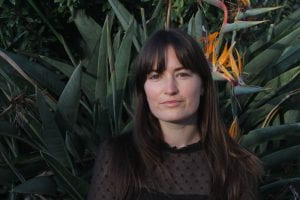
Grace’s thesis topic was ‘Targeting Specialist Skills through Work-Integrated Learning: A Case-Study in Frames Conservation at the Art Gallery of New South Wales’. Grace’s research investigated work-integrated learning to target practical skills deficiencies in the cultural materials conservation sector. Her thesis centred on a case study in frames conservation at the Art Gallery of New South Wales. The results demonstrated the multiple benefits of work-integrated learning as a forward-looking and industry relevant training model. It found that work-integrated learning was especially useful for targeting specialist skill deficiencies in the conservation sector.
Grace would like to acknowledge the generous input of Dr Marcelle Scott in this research, and thank her for her mentorship throughout the process.
Alan Bechaz
Awarded to the highest achieving student in the combined honours course with Philosophy.
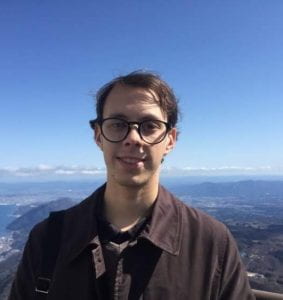 “I completed my combined honours program with coursework in philosophy and a thesis in English, supervised by Justin Clemens. My thesis examined the concept of reading in the life and philosophy of Simone Weil and its relevance to literary studies. I found my coursework in philosophy subjects taken by Karen Jones, François Schroeter and Andrew Inkpin immensely engaging and complementary to my research.”
“I completed my combined honours program with coursework in philosophy and a thesis in English, supervised by Justin Clemens. My thesis examined the concept of reading in the life and philosophy of Simone Weil and its relevance to literary studies. I found my coursework in philosophy subjects taken by Karen Jones, François Schroeter and Andrew Inkpin immensely engaging and complementary to my research.”
Bronwyn Beech Jones
Wyselaskie Scholarship for History and Hansen Trust PhD Scholarship in History
The Wyselaskie Scholarship for History is awarded for the most outstanding overall performance in the first year of the History PhD programme.
One Hansen Trust PhD Scholarship is awarded annually, providing $35,000 annually and a mentoring program that provides valuable experience in tertiary teaching and the promotion of History to the community. Bronwyn said of her scholarship:
“Learning and teaching history cultivates critical curiosity, humility and respectfulness. The Hansen Trust PhD Scholarship will allow me to continue and expand my work to promote and encourage history in Australia and Indonesia.”
Kinto Behr
Two Hastie Scholarships are awarded to the two highest achieving students in honours Philosophy.
The title of Kinto’s thesis was ‘Epistemic Relativism: The Futility of the Argument from the Criterion’.
 “Epistemic relativism is the view that (a) beliefs can only be assessed as justified or unjustified with respect to a given set of rules for reasoning, and (b) there is no sense in which one set of these rules is better than any other. One particularly prominent argument in favour of this position is what my supervisor, Howard Sankey, calls ‘the argument from the criterion’. Very roughly that argument goes like this:
“Epistemic relativism is the view that (a) beliefs can only be assessed as justified or unjustified with respect to a given set of rules for reasoning, and (b) there is no sense in which one set of these rules is better than any other. One particularly prominent argument in favour of this position is what my supervisor, Howard Sankey, calls ‘the argument from the criterion’. Very roughly that argument goes like this:
If we were to try to prove that our rules for reasoning are superior to those of some other folk, then we would inevitably have to employ some rules for reasoning in the process. Naturally, we would employ our own rules. But this would be hopelessly circular. And even if we were, in this way, able to satisfy ourselves of the superiority of our rules, we could hardly be able to convince the other folks. Indeed, they would surely be able to convince themselves of the superiority of their rules for reasoning in a similar manner. And so, in any case, we would be no better off than them.
In my thesis I contend that this argument fails. For, considered more closely, it turns out either to be invalid or question-begging, or otherwise to lead us into full-blown scepticism not relativism.”
Matthew Blyth
Two Hastie Exhibitions are awarded to the two highest achieving students in two undergraduate Philosophy subjects.
Ben Carmichael
The Douglas Howard Exhibition (Latin)
Awarded to the best student in second year studying Latin.
 “Understanding Latin, a language with over 2000 years’ history, allows you to speak with the dead and, when so much of their culture has otherwise been lost, imbues the ancient peoples of the Mediterranean with an incomparable vitality. I’m grateful that UniMelb remains one of the last places in Australia to not only provide the breadth and depth of instruction in Latin that it does, but also supports students engaged in the art through such initiatives as the Douglas Howard Exhibition. Macte virtute!”
“Understanding Latin, a language with over 2000 years’ history, allows you to speak with the dead and, when so much of their culture has otherwise been lost, imbues the ancient peoples of the Mediterranean with an incomparable vitality. I’m grateful that UniMelb remains one of the last places in Australia to not only provide the breadth and depth of instruction in Latin that it does, but also supports students engaged in the art through such initiatives as the Douglas Howard Exhibition. Macte virtute!”
Robert Cassidy-Welch
Rosemary Merlo Prize for 1st Year
Awarded to a 1st year Bachelor of Arts student who submits the best essay.
Anna Clayworth
The Jessie Mary Vasey Prize is awarded for the best third and fourth-year women’s history essays.
Anna won the prize for her third-year essay titled ‘From Courtesans to Abalone Divers: Fantasy and Desire in Ukiyo-e of the Edo Period’.
Georgia Comte
The Margaret Kiddle Prize and the Dwight Final Assessment Prize for Combined Honours
The Margaret Kiddle Prize is awarded annually for the best final honours thesis in History.
The title of Georgia’s thesis was ‘The ‘Man-Painter’ Jacques-Louis David: Misogyny, Homosexuality, and Painting the Masculinities of the Ancien Régime and French Revolution, 1770–1795′.
 The thesis re-evaluated French neo-classical painter Jacques-Louis David’s oeuvre from 1770–1795. Its primary challenge was levelled against the present scholarly interpretation of David as a masculinist painter. The thesis aimed to re-contextualise David’s works by analysing the mythological prototypes of his paintings and sketches as well as delving into his private correspondence.
The thesis re-evaluated French neo-classical painter Jacques-Louis David’s oeuvre from 1770–1795. Its primary challenge was levelled against the present scholarly interpretation of David as a masculinist painter. The thesis aimed to re-contextualise David’s works by analysing the mythological prototypes of his paintings and sketches as well as delving into his private correspondence.
The thesis offered a new interpretation of some of his most famous pre-revolutionary and revolutionary paintings, as well as interpreting previously undiscussed sketches, utilising art-historical and classical lenses in order to reveal an undercurrent of homoeroticism in his work.
It also explored David’s connections with female painters and students, examining the ways in which these relationships offered insight into David’s artistic-political beliefs. In doing so, it challenged the common conception of David as a deeply misogynistic painter, instead suggesting that the intensity of his interest in the masculine subject may have been due to the artist’s potential homosexuality.
Sarah Craze
Gilbert Postdoctoral Career Development Fellowship
Fostering the career development of recently completed PhD students in History, the Gilbert scholarships support the development of doctoral research for publication as a journal article, book chapter or book, and encouraging future applications for ARC DECRA Awards for postdoctoral research.
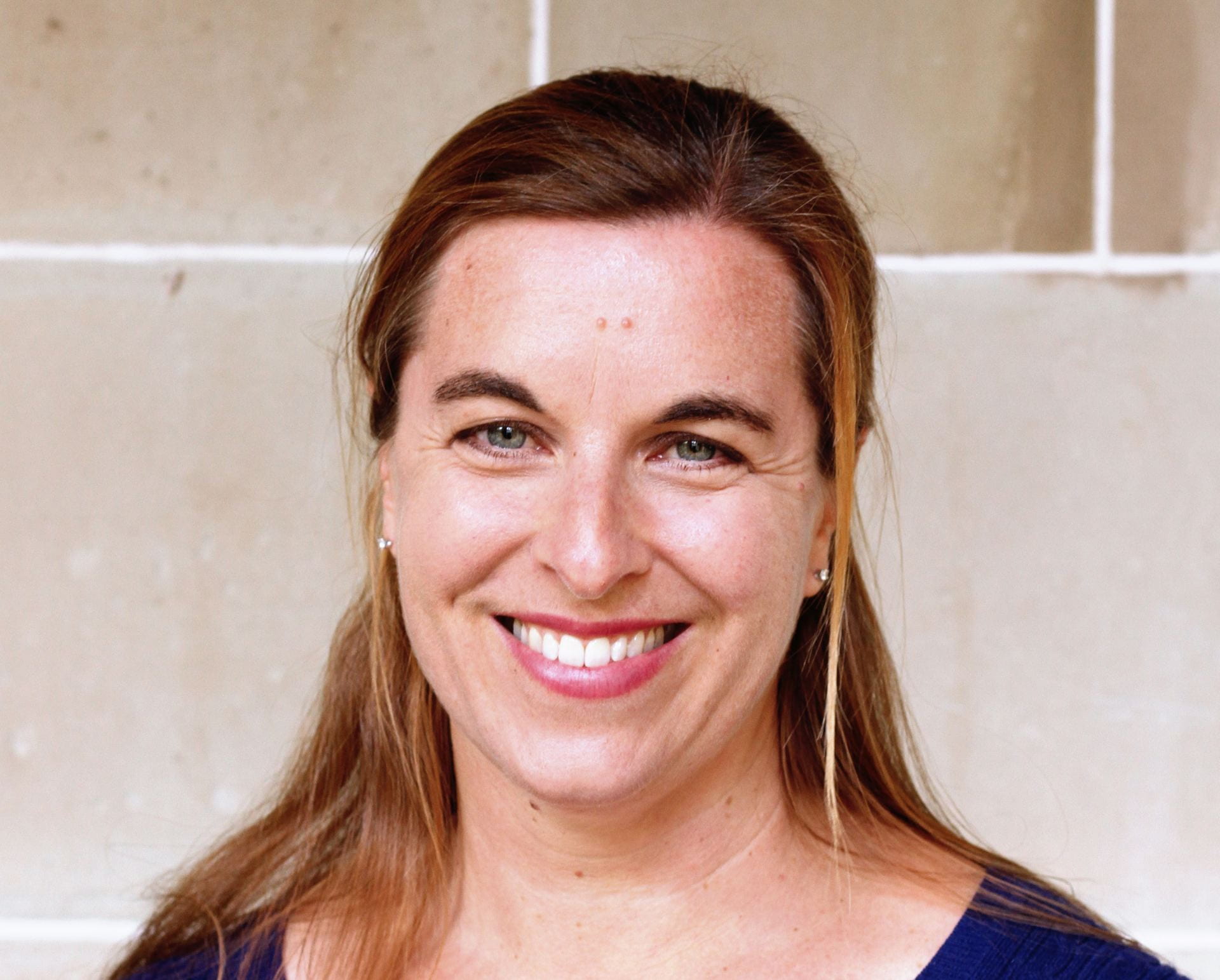 Sarah writes, “During 2019, I received interest from a publisher in creating a monograph based on my PhD thesis on Somali perspectives on piracy. I received my Fellowship to support this process and my application for a DECRA. With the support of my mentor, Professor Joy Damousi, I am hoping to receive funding to enhance my monograph with oral history narratives of Somali pirates and their victims. The financial contribution has been gratefully used for vacation care for my children to help me write in peace during the school holidays.”
Sarah writes, “During 2019, I received interest from a publisher in creating a monograph based on my PhD thesis on Somali perspectives on piracy. I received my Fellowship to support this process and my application for a DECRA. With the support of my mentor, Professor Joy Damousi, I am hoping to receive funding to enhance my monograph with oral history narratives of Somali pirates and their victims. The financial contribution has been gratefully used for vacation care for my children to help me write in peace during the school holidays.”
Nat Cutter
The SHAPS Fellows’ Group Annual History Essay Prize
This prize is awarded for the best published essay submitted by a School of Historical and Philosophical Studies student undertaking a Masters or PhD thesis on a historical topic.
 Nat won the prize for his paper entitled ‘Turks, Moors, Deys and Kingdoms: North African Diversity in the Stuart Periodical Press’, which also won the 2018 Greg Dening Prize, awarded for the best article in Melbourne Historical Journal that resonates with the work of the noted late historian of Pacific history.
Nat won the prize for his paper entitled ‘Turks, Moors, Deys and Kingdoms: North African Diversity in the Stuart Periodical Press’, which also won the 2018 Greg Dening Prize, awarded for the best article in Melbourne Historical Journal that resonates with the work of the noted late historian of Pacific history.
The paper explores, using the case study of diversity, the usefulness of the English-language news press as a window into early modern British perceptions of North Africa. While historians typically argue that most Britons knew very little about North Africa and its people, haphazardly employing “Turk” or “Moor” to stand in for all Muslims (and a great deal more), the news press provides fascinating evidence for a robust and detailed understanding of North African ethnic, political and religious diversity that was made available to thousands of Britons, including those in a position to profoundly impact international relations.
Jessica Doyle
William Snoek Conservation Award
This award supports a heritage conservation project initiated by students studying at the Grimwade Centre for Cultural Materials Conservation.
Catherine Fist
The Dr Rodney Lloyd Benjamin OAM History Prize
This prize is awarded for the best essay in Australian history by a student enrolled in a postgraduate degree in the Faculty of Arts.
 Catherine’s essay was called ‘Set in Stone? Physical Memorials to Frontier Violence in Australia’.
Catherine’s essay was called ‘Set in Stone? Physical Memorials to Frontier Violence in Australia’.
Catherine’s essay periodised physical memorials to frontier violence and analysed the discourses of memory they articulate. This analysis found that monuments, plaques and other physical sites are a useful avenue for exploring evolving discourses around settler identity and how Australia views its own past in local, regional and national dimensions.
Orla Gavin
Two Hastie Exhibitions are awarded to the two highest achieving students in two undergraduate Philosophy subjects.
Catherine Gay
Caroline Kay’s Scholarship for History
 Caroline Kay’s Scholarship in History was set up in 1894 in the will of the Reverend David Kay in memory of his daughter. The scholarship is open to candidates enrolled in a graduate research degree in the field of history in the School of Historical and Philosophical Studies.
Caroline Kay’s Scholarship in History was set up in 1894 in the will of the Reverend David Kay in memory of his daughter. The scholarship is open to candidates enrolled in a graduate research degree in the field of history in the School of Historical and Philosophical Studies.
Catherine Gay is a first-year PhD student whose research explores the lives of girls in nineteenth-century Victoria, with an emphasis on their material culture.
Meghan Grech
The Jessie Mary Vasey Prize for Best Fourth-Year Women’s History Essay
 Meghan was awarded the prize for her essay, ‘Testifier-centric Memory: A Case Study of the Women’s Active Museum of War and Peace in Japan’. This essay “examined the way history of so-called comfort women is created and told in a country where many people are actively hostile and in denial about the abuse these women suffered. It explores how the museum puts the focus on the women, highlighting how their lives both during and after the abuse tell an ongoing history of violence, repression, and resistance, and through this focus promotes reconciliation and the prevention of future sexual violence in war. The essay came from the powerful subject History, Memory, and Violence in Asia, in which I was able to both expand my knowledge of a region that was less prevalent for most of my undergraduate degree and dive into the practical side of history in the construction of public memory.”
Meghan was awarded the prize for her essay, ‘Testifier-centric Memory: A Case Study of the Women’s Active Museum of War and Peace in Japan’. This essay “examined the way history of so-called comfort women is created and told in a country where many people are actively hostile and in denial about the abuse these women suffered. It explores how the museum puts the focus on the women, highlighting how their lives both during and after the abuse tell an ongoing history of violence, repression, and resistance, and through this focus promotes reconciliation and the prevention of future sexual violence in war. The essay came from the powerful subject History, Memory, and Violence in Asia, in which I was able to both expand my knowledge of a region that was less prevalent for most of my undergraduate degree and dive into the practical side of history in the construction of public memory.”
Zara Hakam
The Rosemary Merlo Prize for History (2nd Year)
 Zara won the prize for an essay that she wrote for the subject HIST20059 American History (Revolution to WWII).
Zara won the prize for an essay that she wrote for the subject HIST20059 American History (Revolution to WWII).
Zara’s essay explored the potential differences between the interviews conducted by white and black field workers who questioned former slaves as part of Works Progress Administration’s (WPA) Federal Writers’ Project in the 1930s. In the essay, Zara investigated how the race of the interviewer affected the narratives told by former slaves.
Paula Hendrikx
Prue Torney Memorial Prize and Norman Macgeorge Scholarship
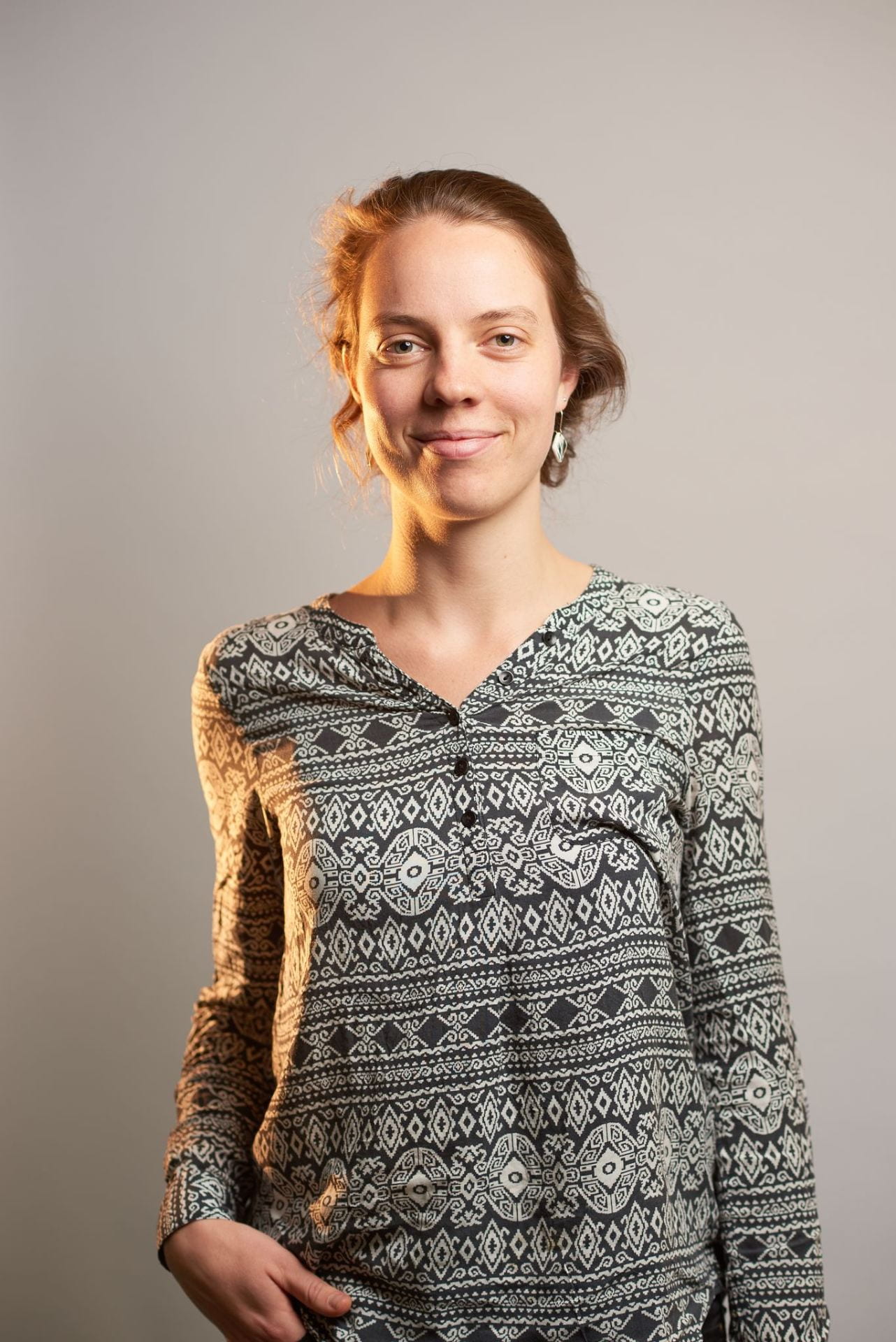 The Prue Torney Memorial Prize supports travel to Asia for historical research studies. It is open annually to female-identifying research students enrolled in a graduate coursework or research program in the School of Historical and Philosophical Studies.The prize will support Paula’s research on women’s roles in social and political activism in the history of independent Indonesia.
The Prue Torney Memorial Prize supports travel to Asia for historical research studies. It is open annually to female-identifying research students enrolled in a graduate coursework or research program in the School of Historical and Philosophical Studies.The prize will support Paula’s research on women’s roles in social and political activism in the history of independent Indonesia.
The Norman Macgeorge scholarship provides grants to support PhD students in the visual, creative and performing arts, music, architecture, conservation, literature, creative writing, language, history, philosophy and anthropology at the University. The scholarship enables PhD students to conduct research trips overseas.
“The Norman Macgeorge Scholarship enabled me to access important documentation held at the International Institute for Social History in Amsterdam, the world’s leading research institute in social history. Thanks to the scholarship I could spend a few weeks at this important institute, gathering sources that are laying the groundwork for several chapters in my thesis.”
Max Kaiser
Gilbert Postdoctoral Career Development Fellowship
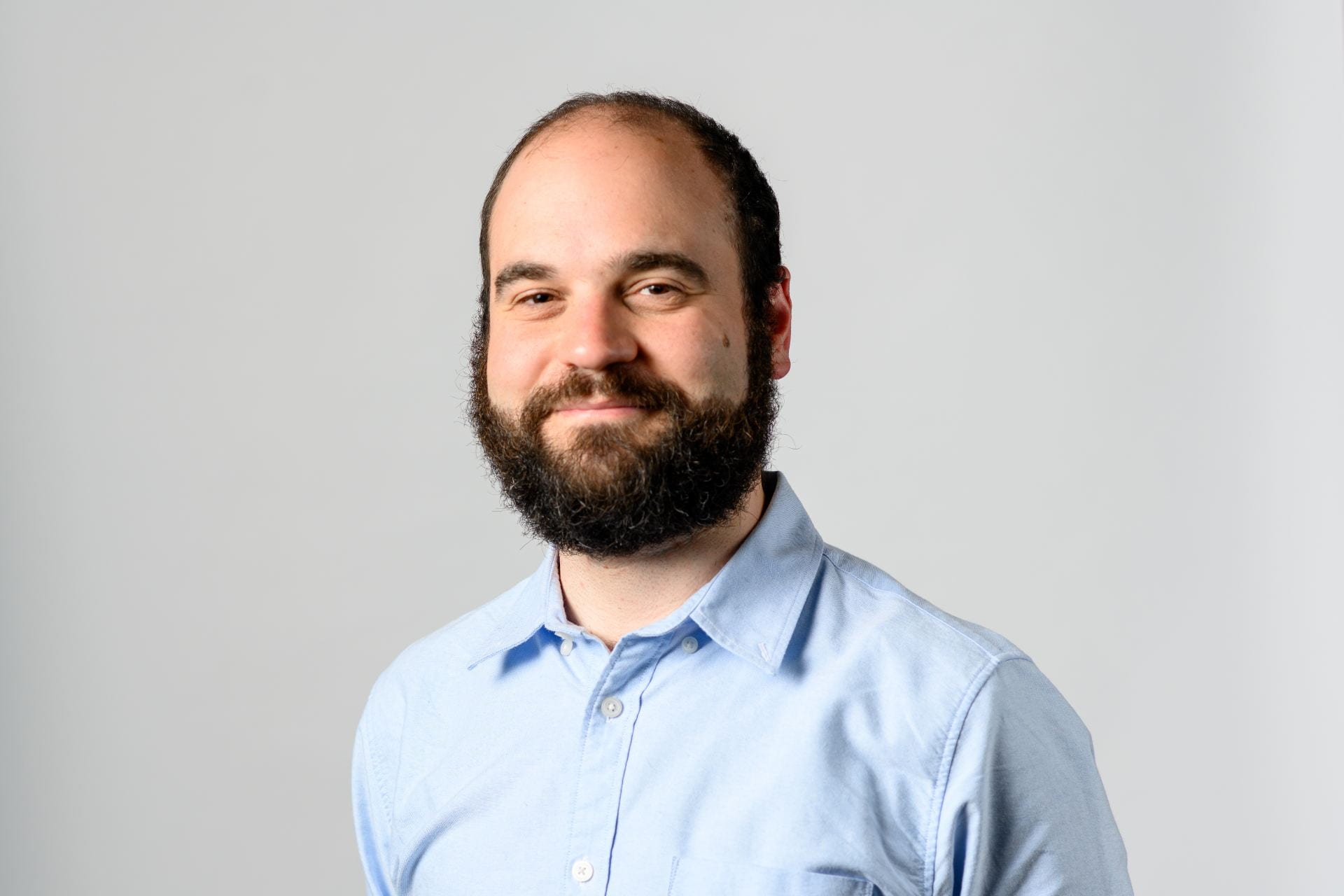 Fostering the career development of recently completed PhD students in History, these scholarships aim to enhance the recipient’s research track record by supporting the development of their PhD research for publication as a journal article, book chapter or book, and encouraging future applications for ARC DECRA Awards for postdoctoral research.
Fostering the career development of recently completed PhD students in History, these scholarships aim to enhance the recipient’s research track record by supporting the development of their PhD research for publication as a journal article, book chapter or book, and encouraging future applications for ARC DECRA Awards for postdoctoral research.
The fellowship will support Max in developing his PhD thesis into a book, tentatively titled Jewish Antifascism and the False Promise of Settler Colonialism.
More on Max’s research can be found on his Forum graduate profile.
Niro Kandasamy
The Dennis-Wettenhall Prize and Gilbert Postdoctoral Career Development Fellowship
 The Dennis Wettenhall Prize, for an MA or PhD thesis in Australian history, was awarded to Niro for her work, ‘The Craft of Belonging: Exploring the Resettlement Experiences of Young Tamil Survivors of Sri Lanka’s Civil War’.
The Dennis Wettenhall Prize, for an MA or PhD thesis in Australian history, was awarded to Niro for her work, ‘The Craft of Belonging: Exploring the Resettlement Experiences of Young Tamil Survivors of Sri Lanka’s Civil War’.
More details on Niro’s research can be found on her Forum graduate profile.
Tom Keep
The William Culican Memorial Award for outstanding ability in the field of Archaeology or Ancient History.
 Tom’s honours thesis was titled ‘Hellenistic Heuristics: A Quantitative Approach to Regional Differences in Hellenistic Sculpture as Propaganda’, and was a discussion of a database of Hellenistic sculpture he had created and quantitatively analysed.
Tom’s honours thesis was titled ‘Hellenistic Heuristics: A Quantitative Approach to Regional Differences in Hellenistic Sculpture as Propaganda’, and was a discussion of a database of Hellenistic sculpture he had created and quantitatively analysed.
Sculpture served as the public mass media of the ancient world, and was utilised in the Hellenistic period as a means of propaganda by the wealthy and powerful. Adopting a quantitative approach, this project catalogued, categorised, and statistically compared 347 statues across a range of variables, most notably a proposed division of the Hellenistic World into three regions defined by indigenous populations, rather than state rulership. The project aimed to determine whether the proposed division would be validated by statistically significant differences in statuary from each region, and proposed tentative explanations for found differences.
Vivian Lu
The Dwight Prize for History is awarded to the highest achieving honours student in History.
 Vivian’s thesis was entitled ‘Survival, Camaraderie and Aspirations: The Intimate Lives of Chinese and Vietnamese Women in Melbourne’s 1990s Textiles Industry’.
Vivian’s thesis was entitled ‘Survival, Camaraderie and Aspirations: The Intimate Lives of Chinese and Vietnamese Women in Melbourne’s 1990s Textiles Industry’.
The thesis examined the history of migrant labour resistance amongst female Chinese and Vietnamese textiles workers in 1990s Melbourne, with a particular focus on raced and gendered agencies.
Drawing extensively on oral history interviewing and diasporic memory, the thesis took a ‘history from below’ approach and honed in on the intimate, personal dimensions of garment factory work. In doing so, it demonstrated how persistence and tacit expressions of resistance in the workplace were located in interpersonal factory relationships, class aspirations and motherhood.
Thanos Matanis
This scholarship allows a postgraduate student to spend a season in Greece under the direction of the British School at Athens or another similar school in Greece.
 “My research involves the historical and cultural investigation of universalism during the Hellenistic period. The Jessie Webb scholarship was meant to fund my short study coarse in Numismatics at the British School at Athens earlier this year. There I would have been instructed under the expertise of seasoned Numismatists and other specialists. More remarkably, I would have had the chance to handle coins struck by Mithradates Eupator and Greco-Bactrian Kings, enabling me to further my understanding of universalism in coins as represented in syncretic gods, symbols, and aesthetic styles. The pandemic has momentarily foiled those plans for 2020 but I hope to resume in 2021.”
“My research involves the historical and cultural investigation of universalism during the Hellenistic period. The Jessie Webb scholarship was meant to fund my short study coarse in Numismatics at the British School at Athens earlier this year. There I would have been instructed under the expertise of seasoned Numismatists and other specialists. More remarkably, I would have had the chance to handle coins struck by Mithradates Eupator and Greco-Bactrian Kings, enabling me to further my understanding of universalism in coins as represented in syncretic gods, symbols, and aesthetic styles. The pandemic has momentarily foiled those plans for 2020 but I hope to resume in 2021.”
Benjamin Mason
Exhibition for 1st Year History
Awarded to the best first-year Bachelor of Arts History student. Ben writes on his experiences thus far: “Studying history at the University of Melbourne has been thoroughly rewarding experience which has provided me with the opportunity to study an eclectic array of subjects.”
Matilda Millar-Carton
Two Hastie Scholarships are awarded to the two highest achieving students in honours Philosophy.
 “My thesis, titled ‘Slurs: A Pragmatic Account in Two Speech Acts’, analysed the function and effect of slurs through the framework of philosophy of language. Taking an Honours year in Philosophy gave me the opportunity to study new and familiar topics in greater depth than my undergraduate degree allowed. It was a fantastic experience to spend a year having thought-provoking discussions with my classmates, and producing a thesis in my area of interest. To receive the Hastie Scholarship was really the cherry on top.”
“My thesis, titled ‘Slurs: A Pragmatic Account in Two Speech Acts’, analysed the function and effect of slurs through the framework of philosophy of language. Taking an Honours year in Philosophy gave me the opportunity to study new and familiar topics in greater depth than my undergraduate degree allowed. It was a fantastic experience to spend a year having thought-provoking discussions with my classmates, and producing a thesis in my area of interest. To receive the Hastie Scholarship was really the cherry on top.”
Adam Moore
 The Ken McKay Prize for Beginners Greek and the H. B. Higgins Exhibition
The Ken McKay Prize for Beginners Greek and the H. B. Higgins Exhibition
The Ken McKay prize goes to the student with the best overall results in Beginners Ancient Greek, while the H.B. Higgins Exhibition is awarded to the student with the highest mark in Beginners Ancient Greek.
“The beginners course provided a large scope for personal development: although it was not expected, one could, by carefully covering all the materials provided, easily begin to read ancient authors such as Plato. This was quite helpful, carrying a low amount of stress, yet high goals to achieve. The course therefore was an excellent primer for ancient Greek 3, which I completed [in first semester 2020].
More broadly, studying ancient Greek has complemented well my prior studies in Latin, and I have subsequently been able to readily engage with a large body of ancient texts with little hinderance, both for Latin and Ancient Greek courses, yet also other subjects, like Classical Mythology.”
Jake Osborne
The Marion Boothby Exhibition and the Donald Mackay British History Prize
 The Marion Boothby Exhibition is awarded to the student with the highest mark in the first, second or third year subjects in the field of British History in that year.
The Marion Boothby Exhibition is awarded to the student with the highest mark in the first, second or third year subjects in the field of British History in that year.
“Studying history has been enriching to my life in ways difficult to completely articulate. It has given me a richer knowledge of our history as an organised species, but also has helped me understand how this information continues to be relevant; issues of governance, religion, gender and identity that were present from as far back as antiquity still influence our thought up to the modern day, and it is salient to recognise this if we hope to forge a more enlightened society in the future.
But more than that, the sense of contributing in some small way to the shared human endeavour that is the field of history has brought me a satisfaction that is difficult to find elsewhere in life.”
Leo Palmer
Awarded to the student with the highest aggregate mark for first-year Beginners Latin A and B.
“Beginners Latin was my favourite course during my first year at Melbourne. Above all, my appreciation for Latin’s radical influence on the English we speak today has been deepened as a result of studying Latin.”
Bethany Phillips-Peddlesden
Gilbert Postdoctoral Career Development Fellowship
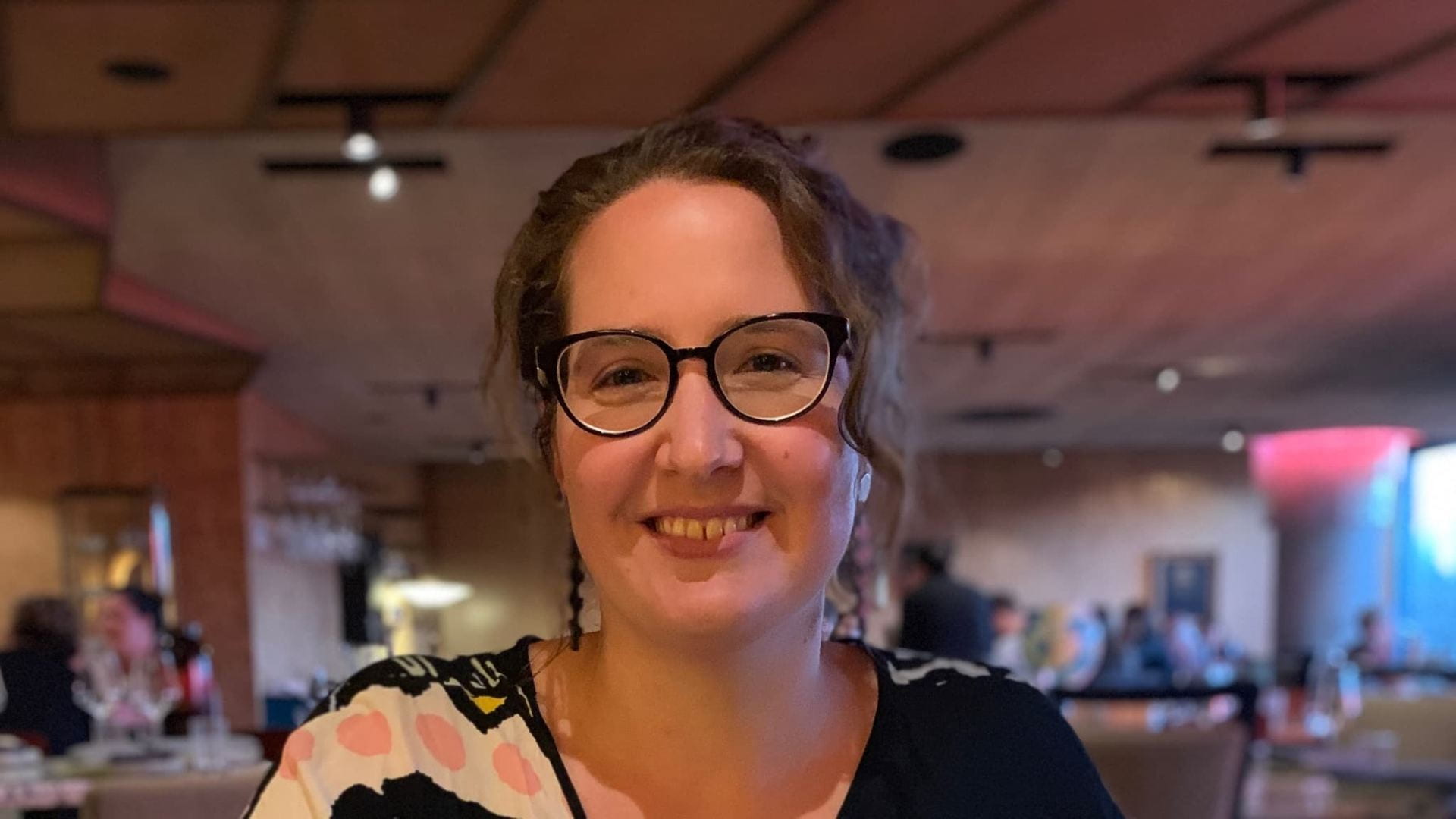 Bethany completed her PhD on the topic, ‘Prime Ministers: Gender and Power in Australian Political History, 1902–1975‘. The fellowship will support her in developing her PhD for potential publication as a book and working on the completion of a journal article.
Bethany completed her PhD on the topic, ‘Prime Ministers: Gender and Power in Australian Political History, 1902–1975‘. The fellowship will support her in developing her PhD for potential publication as a book and working on the completion of a journal article.
More on Bethany’s research on her Forum graduate profile.
Daniel Rankin
The D.H. Rankin Essay Prize
The D.H. Rankin Essay Prize is awarded to the student who submits the best honours thesis in Classics.
Dan’s thesis was titled, ‘τὸν ἀγῶνα καὶ τἆλλα ἅ ἐψήφισται ὁ δῆμος συντελεῖν: The Political Context of Greek Athletic Contests in the Third Century BC’.
 “My thesis examined the intersection between religion, politics and athletics in the early Hellenistic period of ancient Greece. I argued that athletic competitions served as diplomatic summits which could mediate new alliances between the many disparate states of the Greek world. In doing so I demonstrated that claims of territorial inviolability and religious status, and in particular the stone tablets they were inscribed on, were arranged in a curated display to demonstrate ethnic and ancestral commonality between widely separated cultural groups; these tablets were surrounded by carefully chosen mythological motifs in order to rewrite historical narratives and provide ‘evidence’ that new alliances based on kinship should exist. I am very grateful to have received this prize and look forward to pursuing further research in this area.”
“My thesis examined the intersection between religion, politics and athletics in the early Hellenistic period of ancient Greece. I argued that athletic competitions served as diplomatic summits which could mediate new alliances between the many disparate states of the Greek world. In doing so I demonstrated that claims of territorial inviolability and religious status, and in particular the stone tablets they were inscribed on, were arranged in a curated display to demonstrate ethnic and ancestral commonality between widely separated cultural groups; these tablets were surrounded by carefully chosen mythological motifs in order to rewrite historical narratives and provide ‘evidence’ that new alliances based on kinship should exist. I am very grateful to have received this prize and look forward to pursuing further research in this area.”
Nechama Ruschinek
The National Council of Jewish Women of Australia Fanny Reading Scholarship and the A.D. Hallam Memorial Prize for Advanced Hebrew
 “The ability to study Hebrew at tertiary level has significantly enriched both my academic and personal pursuits. Overall, this subject has given me the opportunity to improve my Hebrew writing, reading and speaking skills. However, not only have I enhanced my level of Hebrew competency, but I have also been able to critically engage with my personal ancestral history, present and future.
“The ability to study Hebrew at tertiary level has significantly enriched both my academic and personal pursuits. Overall, this subject has given me the opportunity to improve my Hebrew writing, reading and speaking skills. However, not only have I enhanced my level of Hebrew competency, but I have also been able to critically engage with my personal ancestral history, present and future.
Indeed, this has been made possible through the study of authentic classic and contemporary literary texts and poems. The texts delve into and tackle complex themes prevalent in Israeli and Jewish culture. I have also learned to deal with and debate themes like the Holocaust, as well as current issues in Israeli and Jewish life from a new perspective. I plan to continue studying Hebrew throughout my Arts degree and hope to visit Israel when I graduate at the end of 2021, where I will be able to practically apply this new knowledge and skillset.”
Kathryn Shanks
The Laurie R. Gardiner Prize, the Bowen Prize, and the R.G. Wilson Scholarship for 3rd Year
 The Laurie R. Gardiner Prize is awarded annually for the best undergraduate essay in early modern British history. The Bowen Prize is awarded to the student who submits the best essay on a subject in the field of British History or British literature. This prize alternates each year between the School of Historical and Philosophical Studies and the School of Culture and Communication.
The Laurie R. Gardiner Prize is awarded annually for the best undergraduate essay in early modern British history. The Bowen Prize is awarded to the student who submits the best essay on a subject in the field of British History or British literature. This prize alternates each year between the School of Historical and Philosophical Studies and the School of Culture and Communication.
Kathryn’s prize-winning essay was titled ‘Balladeers, Crime, and Print: A Matter of Reputation’. The essay explored how ballad singers and sellers in early modern England were associated with crime in media despite few appearances in the court records of the Old Bailey.
Sandra Stojkovic
This scholarship allows a postgraduate student to spend a season in Greece under the direction of the British School at Athens or another similar school in Greece.
Donna Storey
Thérèse and Ronald Ridley Scholarship
The Thérèse and Ronald Ridley Scholarship supports a current PhD student in the Classics and Archaeology department at the University of Melbourne. The scholarship is to be used to travel to the British School at Rome to conduct research that will assist PhD completion.
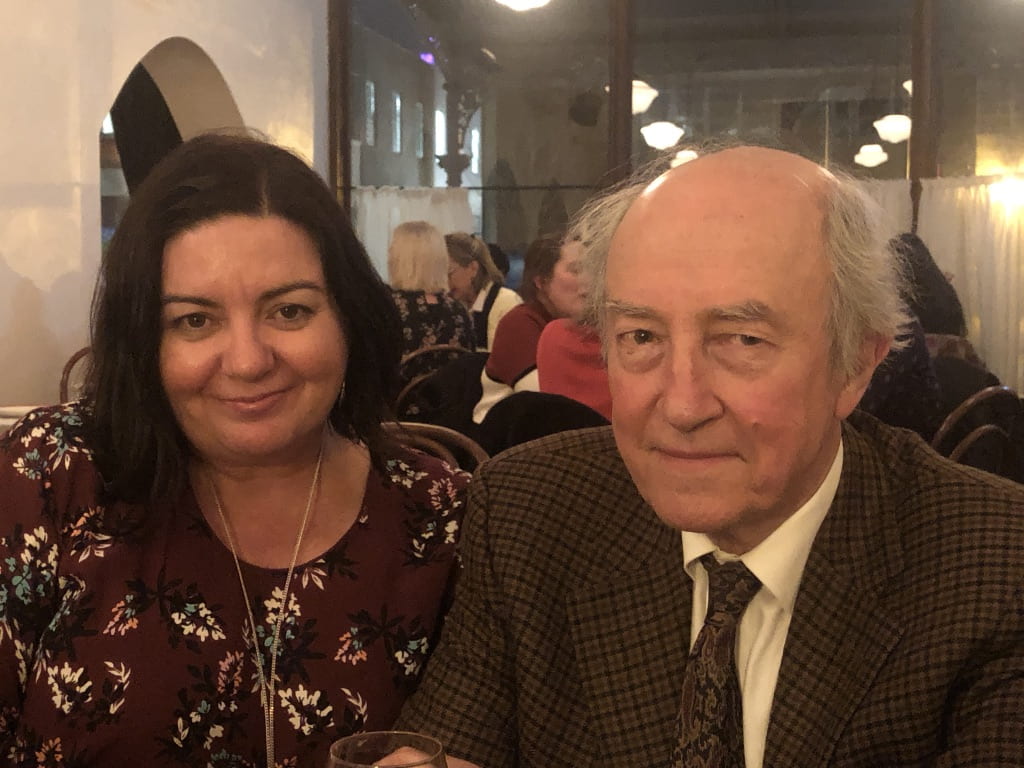 “My thesis, entitled ‘Race and Romanità in Fascist Italy’ investigates the use of ancient Rome in Italian Fascist propaganda, particularly as justification for forced Italianisation policies in annexed borderlands. The opportunity to travel to Rome as the inaugural recipient of the Thérèse and Ronald Ridley Scholarship and spend two months in residence at the British School at Rome was invaluable, and has contributed greatly to my thesis research.
“My thesis, entitled ‘Race and Romanità in Fascist Italy’ investigates the use of ancient Rome in Italian Fascist propaganda, particularly as justification for forced Italianisation policies in annexed borderlands. The opportunity to travel to Rome as the inaugural recipient of the Thérèse and Ronald Ridley Scholarship and spend two months in residence at the British School at Rome was invaluable, and has contributed greatly to my thesis research.
Apart from the incredible resources at the BSR itself, I was able to visit the Central State Archives, the National LIbrary, and other academic institutions such as the German, Dutch, and Belgian Historical Institutes. Additionally, I visited historical sites of interest, such as Parco Archeologico di Ostia Antica and the Sepolcro degli Scipioni, as well as exhibitions such as Pompei e Santorini – L’eternità in un giorno at the Quirinale, Carthago: il mito immortale at the Colosseum, and of course relevant Fascist sites such as the former Fascist youth headquarters and the Foro Italico. Overall my time at the BSR was an enriching experience both academically and personally, and I am very grateful to Thérèse and Ron Ridley for making the opportunity possible.”
Dominique Tasevski
The Brian Fitzpatrick Prize for Best Honours Thesis in Australian History
Dominique’s thesis was entitled ‘Comrades in Arms?: The Relationship between the Australian and Indonesian Communist Parties from 1954–68’.
 The thesis analysed solidarities between the Communist Party of Australia (CPA) and the Indonesian Communist Party (PKI) during the height of the Cold War. It outlined the complexities in the CPA-PKI relationship and the ways in which the Sino-Soviet dispute impacted the ties between the organisations. It also examined the CPA-PKI relationship within the context of regional political issues including the West Papua dispute and Konfrontasi through to the 1965–66 anti-Leftist violence in Indonesia. The thesis argued that the CPA-PKI relationship was premised upon political solidarity and shifted to activism on behalf of persecuted Indonesians following the outbreak of violence.
The thesis analysed solidarities between the Communist Party of Australia (CPA) and the Indonesian Communist Party (PKI) during the height of the Cold War. It outlined the complexities in the CPA-PKI relationship and the ways in which the Sino-Soviet dispute impacted the ties between the organisations. It also examined the CPA-PKI relationship within the context of regional political issues including the West Papua dispute and Konfrontasi through to the 1965–66 anti-Leftist violence in Indonesia. The thesis argued that the CPA-PKI relationship was premised upon political solidarity and shifted to activism on behalf of persecuted Indonesians following the outbreak of violence.
Dominique’s thesis constitutes the first account of the Australian Left’s reaction to the 1965–66 violence. It asserted that the CPA led Australian political opposition to the violence amid little other protest. It additionally provides new insights into Australia-Indonesia relations by investigating the previously unexamined history of Australian and Indonesian Communist solidarities. Dominique’s thesis therefore fills a long-neglected gap in the scholarship on non-Asian Communist Parties’ support for the PKI during the 1960s.
Larissa Tittl
This scholarship allows a postgraduate student to spend a season in Greece under the direction of the British School at Athens or another similar school in Greece.
 “Being awarded the Jessie Webb Scholarship in 2019 gave me insights into and resources for my research that Australian-based study through books and images could not have done. I was able to undertake research at the British School at Athens and the Knossos Research Centre in Crete, as well as visit various Minoan sites and landscapes on Crete. The sensory experiences of trekking up to the top of Mt Jouktas to visit the peak sanctuary there, and Mt Psiloritis to visit the Idaean Cave, are only possible in person. Sitting high on a hill at the palatial centre of Phaistos, looking at the far-off but still visible entrance to the Kamares Cave on Mt Psiloritis was unforgettable, as well as vital to my research into sightlines between mountains and palatial centres.”
“Being awarded the Jessie Webb Scholarship in 2019 gave me insights into and resources for my research that Australian-based study through books and images could not have done. I was able to undertake research at the British School at Athens and the Knossos Research Centre in Crete, as well as visit various Minoan sites and landscapes on Crete. The sensory experiences of trekking up to the top of Mt Jouktas to visit the peak sanctuary there, and Mt Psiloritis to visit the Idaean Cave, are only possible in person. Sitting high on a hill at the palatial centre of Phaistos, looking at the far-off but still visible entrance to the Kamares Cave on Mt Psiloritis was unforgettable, as well as vital to my research into sightlines between mountains and palatial centres.”
The Greg Dening Memorial Prize
Awarded annually to the best graduate work in History, Classics or Archaeology which engages with the broad themes and methodologies in Greg Dening’s work and thinking, and published in Melbourne Historical Journal.
“It was a surprise and honour to have been awarded the Greg Dening Prize for my article ‘Of Honour and Innocence: Royal Correspondence and the Execution of Mary, Queen of Scots’. My article focuses upon the diplomatic correspondence exchanged between Queen Elizabeth I of England and James VI of Scotland around the time of the execution of Mary, Queen of Scots in 1587, and the rhetorical tropes that both monarchs used.
The correspondence of Elizabeth I has long interested me, as it was the focus of my previous Master of Philosophy degree and it now forms a component of my current PhD thesis which explores the impact of the long-running Elizabethan succession question on English political discourse on royal prerogative and government. The Greg Dening Prize is a further encouragement to not only continue to research this fascinating area of history but to seek to share what I uncover widely through publications.”
Ella Viggiani
The Douglas Howard Exhibition for Ancient Greek
Awarded annually to the best student in second year studying Ancient Greek.
“Being awarded this prize feels particularly encouraging. I am excited to continue my studies in Classics and am especially grateful to the providers of the Douglas Howard Exhibition in Ancient Greek.”
Sam Wallace
Laurie Prizes (Major)
Sam Watts
This scholarship is available to Australian and International graduate research History students to help with the cost of travelling overseas for research purposes.
 “I am very grateful to have received this wonderful travel prize, it helped me complete my final archival trip through the Deep South [USA] for my research into urban African American daily life during Reconstruction. In two weeks I drove over 1500 miles and visited more than a dozen archives across four states – this generous assistance was very helpful in keeping me well fed and caffeinated throughout.”
“I am very grateful to have received this wonderful travel prize, it helped me complete my final archival trip through the Deep South [USA] for my research into urban African American daily life during Reconstruction. In two weeks I drove over 1500 miles and visited more than a dozen archives across four states – this generous assistance was very helpful in keeping me well fed and caffeinated throughout.”
You can read more about Sam’s research and trip in his recent Forum post.
Annabel Weiss
The Donald Mackay History Prize
Awarded to the student with the highest mark in any History subject (other than British History) in the second year of a Bachelor of Arts.
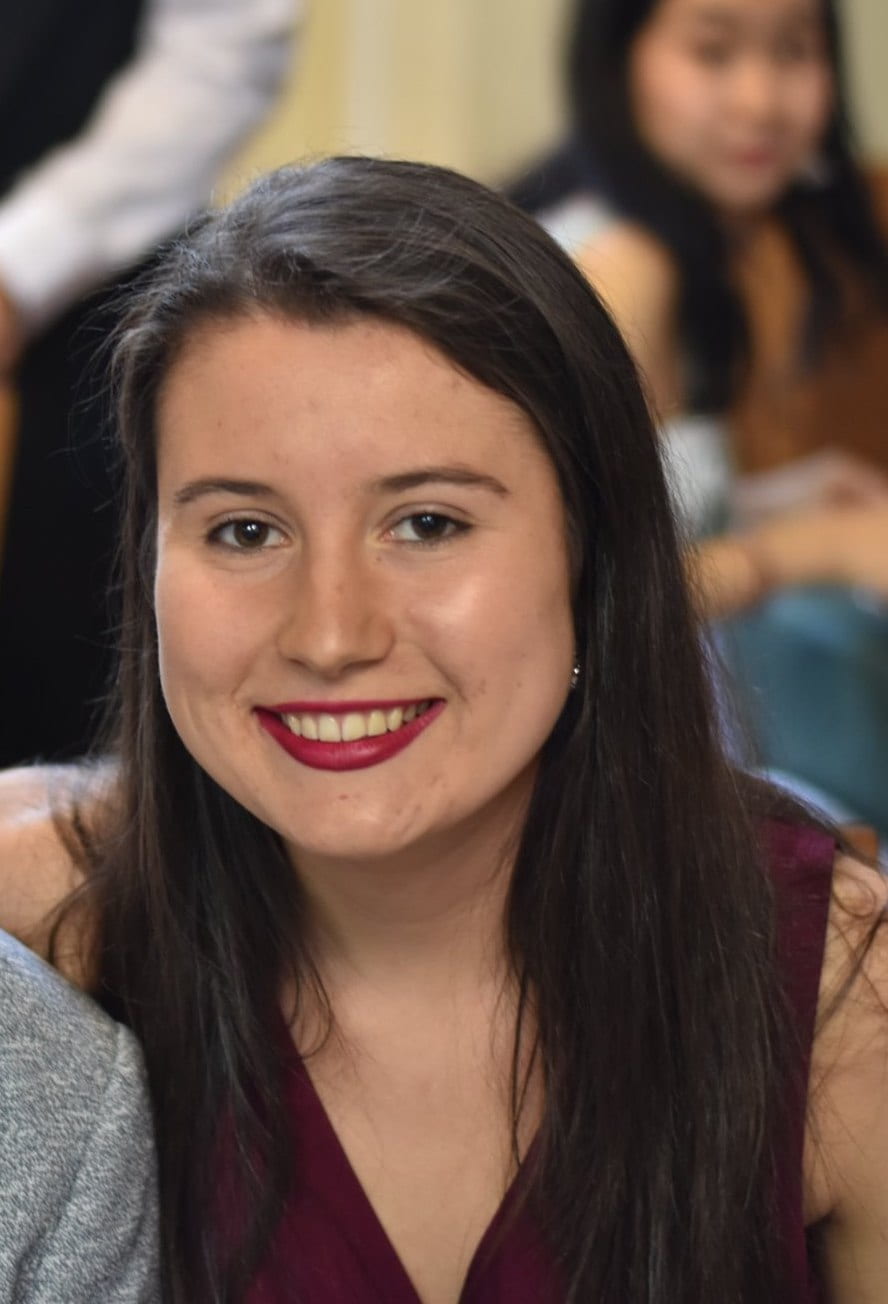 “I chose to study history as my major because I figure that I am unlikely to be able to access a time machine any time soon and historical exploration is the next best option. I love that history allows me to travel back in time and learn more about my life and world through the eyes of people generations past. In particular, through studying history I have been able to connect with other women across time and reflect on how their struggles and experiences are both widely different and strangely similar to my own.”
“I chose to study history as my major because I figure that I am unlikely to be able to access a time machine any time soon and historical exploration is the next best option. I love that history allows me to travel back in time and learn more about my life and world through the eyes of people generations past. In particular, through studying history I have been able to connect with other women across time and reflect on how their struggles and experiences are both widely different and strangely similar to my own.”
Jenna Worswick
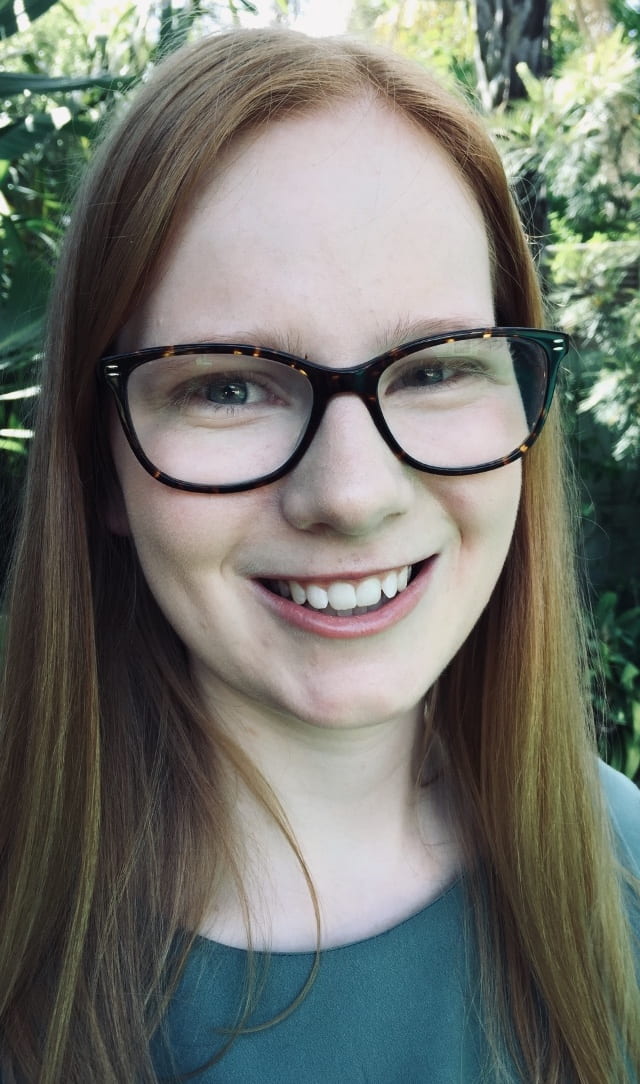 Awarded to the highest achieving student for an essay on early modern European history.
Awarded to the highest achieving student for an essay on early modern European history.
“I began drafting my essay on the regulation and toleration of Jews in Renaissance Venice while studying in the city itself, completing an intensive subject about Venetian cultures of consumption. It was an incredible experience, and one made all the more memorable by the people and places encountered overseas – the perfect way to cap off my History major!”
Sasha Wynne
The Exhibition for 1st Year Classics
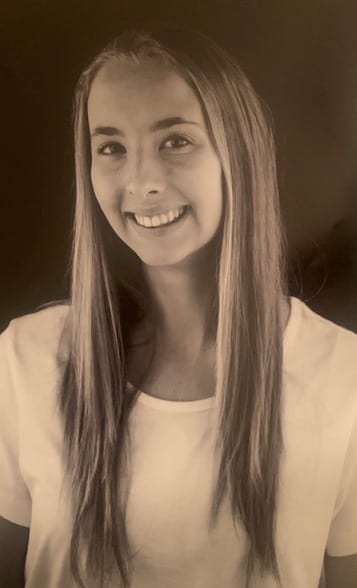 Awarded to the best first-year Bachelor of Arts Classics student.
Awarded to the best first-year Bachelor of Arts Classics student.
“I thoroughly enjoyed my experience doing Myth, Art and Empire: Ancient Greece and Rome (ANCW10002) as it afforded me the opportunity to delve into my pre-existing knowledge of ancient history in a really engaging and interactive way. As I am particularly interested in mythology and the Roman socio-political sphere, this class was well suited to my interests. I really enjoyed writing my essay on Euripides’ Bacchae and on Roman slavery as both were simultaneously challenging and engaging topics.”

